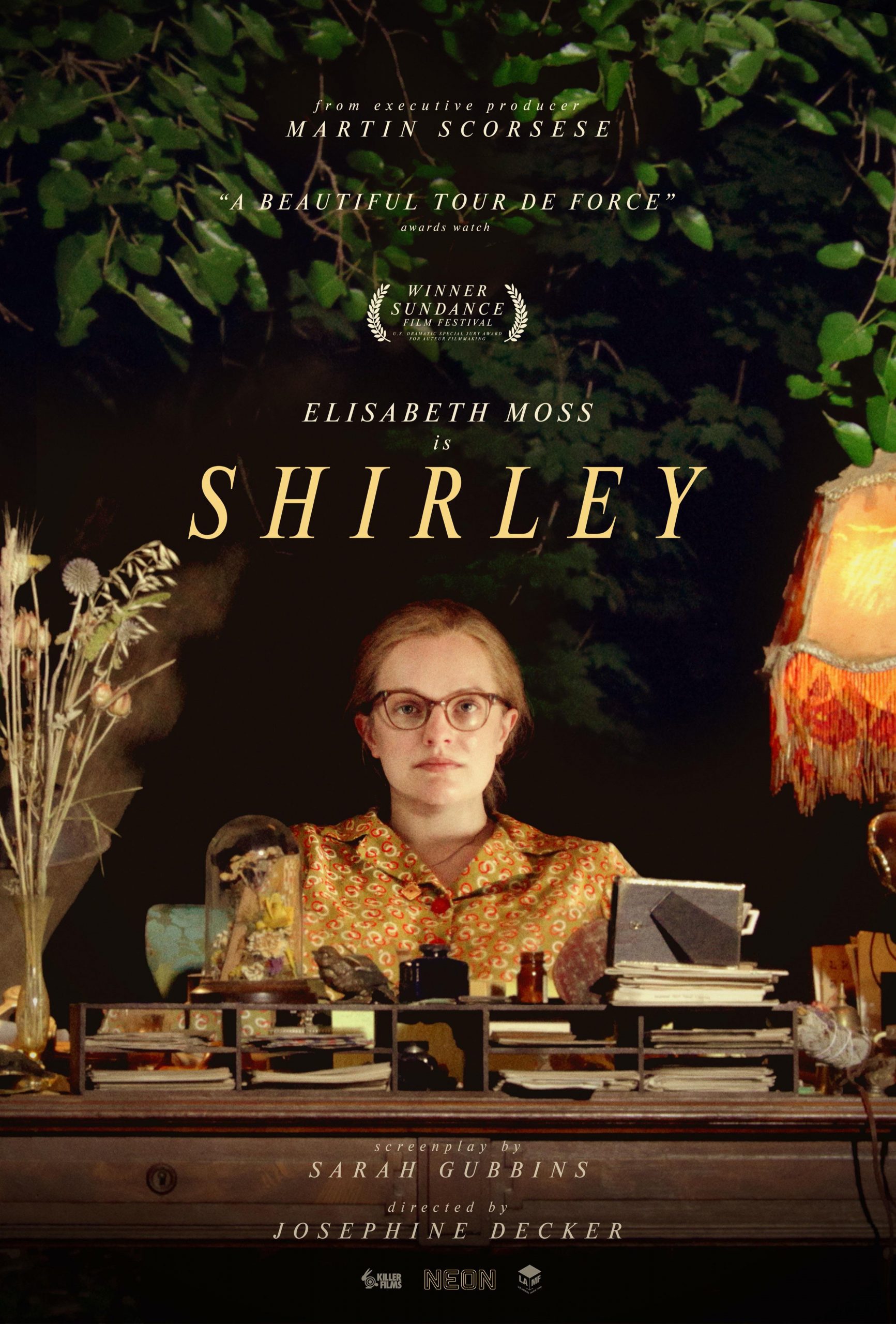
Shirley: Not a Biopic
More Videos
Published
4 years agoon
By
Kayla Bell
Like many horror fans, Shirley Jackson is one of my favorite writers of all time. I’ve read almost all of her books and short stories. One of the most interesting things about her writing is analyzing how her own life impacted her stories. Going into this movie, I thought that would be the major theme. Spoiler alert: Shirley wasn’t actually about Shirley Jackson, the real-life horror author. It’s a psychological drama that uses the names of Shirley Jackson, Stanley Hyman, and a few of her short stories. But was it still good?
If it’s not a biopic, then what is it about?
The story portrayed in Shirley and the novel that it’s based on is completely fictional. The movie starts with a young couple, Fred and Rose, on a train to Bennington, Vermont. Fred is an academic, and has just gotten a job helping Professor Stanley Hyman with his research. The professor has offered for the couple to stay in his home. He is very warm and friendly, the life of the party. His wife, Shirley, on the other hand, is incredibly cold, rude, and very clearly depressed. Stanley asks Rose to basically become his housekeeper in exchange for free room and board. Pressured by her husband, Rose agrees. Soon, her husband and Stanley are gone all day at work and she is stuck in the house cleaning, cooking, and talking to Shirley. Fred is out late every night, advising the campus Shakespeare Society.
The two women start off with an antagonistic relationship (Shirley somehow guesses that Rose is pregnant, reveals it to everyone at the dinner table, and accuses Rose and Fred of having a shotgun wedding), but they soon grow close. Shirley is obsessed with the recent disappearance of a Bennington College student, and Rose agrees to help her investigate. This becomes the basis for Shirley’s new novel (you guessed it), Hangsaman.
As Shirley and Rose grow closer, Rose starts to realize how similar her own life is to the author’s. Both women are pretty much confined to the home while their husbands cheat on them with their undergraduate students. This is especially true towards the end of the movie, when Rose has her baby and must take care of the child on top of the house. The film culminates in Rose having a breakdown after Shirley reveals that there is no Shakespeare Society, and that Fred has just been using that as an excuse to sleep with his students.
What the movie got right
This film has one of the best aesthetics I’ve ever seen. The cinematography perfectly captures a gothic vibe. I’m even using one of the screenshots I took as my computer background because it’s so creepy and beautiful. Building off of that, the soundtrack for this movie was incredible. Tamar-kali, the composer, did a fantastic job of setting the paranoid, sad, haunted tone of the film. The soundtrack really highlighted the characters’ difficult emotions. I will definitely be turning this playlist on the next time I’m writing gothic horror.
I also would be remiss if I didn’t talk about the performances. Every single actor in this film did such a great job. Odessa Young as Rose gave a really compelling performance of a character that could have ended up being quite boring. Elisabeth Moss was phenomenal in her portrayal of depression, agoraphobia, and dissatisfaction (although, to nitpick, she didn’t do a good impression of the author’s voice). The scenes where Shirley interacts with her husband are so nuanced and real. She was hard to watch, in a good way. Another standout was Michael Stuhlbarg as Stanley. He toed the line really well between being warm, manipulative, and predatory. All of the actors should get awards for this movie, in my opinion.
The themes in the film were fascinating. Ultimately, Shirley is about the horrors that women face in a patriarchal society, of how terrifying it is to remove yourself from the outside world, be forced to run a household by yourself, and still be invisible. This film is very claustrophobic and delves deep into the profound loneliness that these women feel. Further, it connects these feelings to the novel Hangsaman, which you should read. For that reason, I think Shirley is definitely worth watching.
Finally, there were a lot of fun easter eggs for us fans of Shirley Jackson’s work. Obviously, there are plenty of references to Hangsaman, from a stern Stanley determined to read and critique Shirley’s writing to a wild masquerade party around a bonfire. There’s also a scene featuring something no fan of We Have Always Lived in the Castle would miss: death-cap mushrooms.
What it got wrong
As the title states, this movie is not a biopic. So, I don’t fault the movie for not being true to life. However, I do think it’s interesting and important to talk about what Shirley Jackson’s life was actually like during the time the film takes place.
Shirley takes place in the late 1940s or early 1950s, after Jackson published her infamous short story The Lottery. The film portrays the author as a depressed recluse who is alone all day and obsessed with writing a novel based entirely on a real-life disappearance. In reality, Shirley Jackson’s life at the time was very different. I am by no means an expert on this woman’s life, but here are some facts that I do know about my favorite author.
Jackson was actually raising four small children in suburban Connecticut during this time period. Obviously, I understand that there are legal issues that could have prevented the filmmakers from including Shirley and Stanley’s children. But, by most accounts, Shirley seemed like a fun, active mother. You can even read her own reflections on parenting in her popular memoirs Life Among the Savages and Raising Demons. According to her children, at the time the film takes place, the house was always full of play, visitors, and pets. I doubt that this real-life element would have contributed to the gothic, sad tone of the movie. And, to be fair, Jackson never loved being a housewife and did have a pretty rough marriage. Still, it was a little bizarre to see someone who was described by most people who knew her as lively and kind, if reserved, to be portrayed as brash, unhinged and downright cruel at points.
While Jackson did suffer from depression and agoraphobia after writing We Have Always Lived in the Castle, she actually seemed to have been pretty stable while writing Hangsaman. Furthermore, the film treats Hangsaman as though it’s some sort of true crime novel based on the disappearance of Paula Welden. That’s not really true. While Jackson did get some inspiration from the case while writing the novel, she wasn’t utterly obsessed with it as the character of Shirley was in the film. For a while, the movie took on this weird almost detective story tone as Shirley sent Rose to investigate the case. That was kind of jarring and had no basis in reality.
One of the worst parts about this film was that it didn’t involve Jackson’s actual writing when it could have. Throughout the movie, Shirley reads lines from her Hangsaman manuscript. These lines aren’t actual lines from the book. It was really bizarre to hear these made-up quotes when they could have just quoted the novel itself and it would have worked better. This choice I really do not understand. Hangsaman is a great book that perfectly fits the themes of the movie. Why not have Elisabeth Moss read lines from it?
Oh, and this is pure speculation but I’m pretty sure Shirley Jackson didn’t have the X-Men power of guessing when a woman was secretly pregnant.
Final Thoughts
This is a haunting, interesting film. It deals with the dread and horror of women grappling with being forced into a subservient, domestic gender role, mistreated by their husbands but unable to do anything about it. It’s about “lost girls” who live on the margins and disappear. But it is not biographical. I would really hate for people to come out of this movie thinking that it was a completely accurate portrayal of Shirley Jackson’s life. Her story was actually more empowering in reality: she broke free from a bigoted, repressive family, wrote some of the greatest horror fiction of all time, and found joy raising her children even though she had a difficult relationship with her husband. That story, to me, is more powerful than the one portrayed in Shirley, and why I didn’t love the film as much as I wanted to.

You may like
2 Comments
Leave a Reply
Cancel reply
Leave a Reply
This site uses Akismet to reduce spam. Learn how your comment data is processed.
We have come now to the finale of season four of The Boys. And while it didn’t have the literal blood fireworks I wanted, someone did get ripped in half in the air. So, that’s pretty close.
As a note, I will try to avoid spoilers as much as possible. This ending was a hell of a gut punch that should be experienced as blindly as possible. That being said, I will not be able to avoid spoilers and still give a full legitimate review. Proceed at your own risk.
The story
The main storyline for this episode is the attempted assassination of President-Elect Robert Singer. The Boys join forces with the Secret Service to protect him. But, as we learned last episode, Annie has been replaced with a shapeshifter. A shapeshifter that was welcome not just into Hughie’s anus, but into the protective bunker in which the President-Elect is hiding.
What worked
The first thing I want to discuss about this episode is the ending. But we need to do this carefully.
The important thing here is that the ending breaks your heart on so many levels. So many terrible things are happening to characters that it’s almost hard to keep track. And each moment is significant to each character.
I cannot give a specific example. But no matter who your favorite character is, you’re going to weep for them.
Unless your favorite character is Sage. And this is the next thing that made this episode so fantastic.
I don’t think I’m spoiling anything to say that Sage’s plans worked out exactly as she wanted them to. And she got exactly what she wanted.
What she wanted wasn’t power. It wasn’t money or fame or vengeance. It wasn’t to win the love of anyone. She just wanted to see if she could do it.
That is a terrific, terrifying motivation! Because all she wants is to play a massive game of chess with people as pieces. She doesn’t care about anyone. She just wants to see how many people she can manipulate. She just wants to set things on fire to see if she can.
Fantastic. A plus villain work.
The next thing I want to discuss is a cornerstone of the whole series.
The morality of The Boys shifts through the series. While it’s very much a battle to save the world from overpowered super monsters, it’s also a battle for the souls of our real heroes. And in that battle, there are two warring factors. We have Hughie, always trying to bring everyone up to a better level. And we have Butcher, who has no problem at all hitting rock bottom with a shovel in hand to do some more digging.
In this episode, we saw almost every member of The Boys challenged. Will they rise to their higher angels, or sink with their demons?
On a similar note, I am so glad that the writers kind of addressed my issues with Annie. They did this by having the shapeshifter get right into her face and accuse her of thinking that she’s better than everyone.
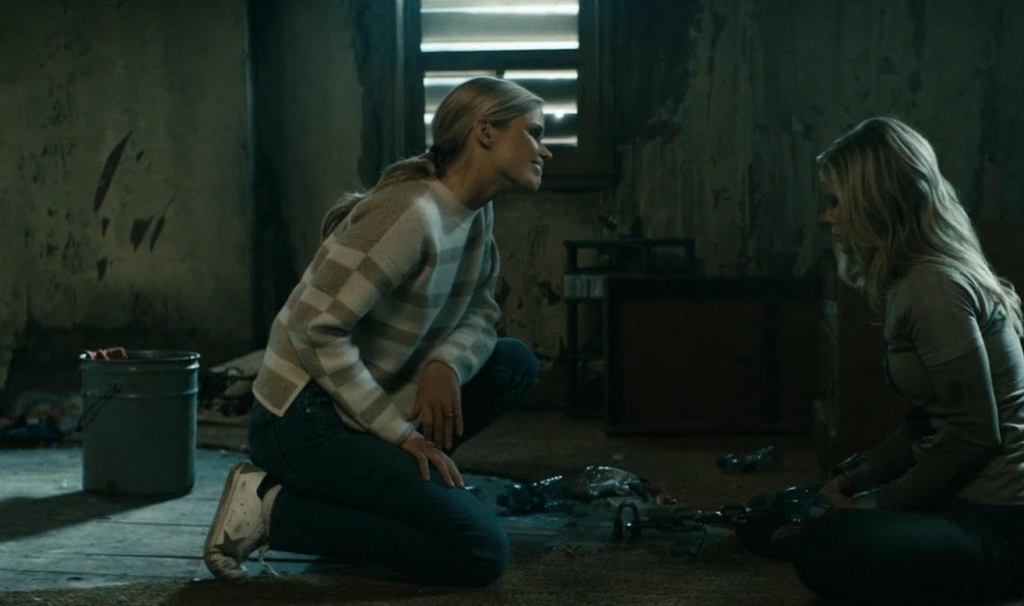
While that was devastating for the character, it was a little cathartic for those of us who felt like Annie was a little too good of a good guy.
What didn’t work
This is a small matter, but it is an issue that I want to address. After Annie finds out that Hughie slept with her doppelganger, she is furious at him.
In addition to this being unfair, it’s also a very cliche element to add. In almost every instance of a lookalike in fiction, there’s a moment where the love interest of the victim is fooled. Or almost fooled. And it’s always the same fight. It’s just played out and predictable. I’m just glad that it didn’t last very long.
Now that we’ve come to the end of the season, I can officially say that it was amazing. The story was deep and rich. The special effects were a stomach-turning good time. The character development was spot-on and satisfying. And, of course, it left me just about gagging to see what happens next. Unfortunately, it looks like we’ll have a bit of a wait. Because as of right now, the fifth season isn’t expected until 2026.

We’ve reached the second to last episode of The Boys, season four. And, as is appropriate for the penultimate episode of any show, things have to get a lot worse before they can get better.
Let’s discuss.
The story
Christmas is coming, and the whole world is getting ready. Ryan, despite being very clear that he didn’t want to appear on any TV shows or movies, has been strong-armed into participating in a Vought puppet Christmas special. He draws the line, though, when asked to sing about turning one’s parents in if they start talking about woke things.
Meanwhile, The Boys are trying to keep each other together. Butcher decides to take Sameer to the rest of the team. He also gets Frenchie out of prison, hoping they can make the Sup virus necessary to finally take down Homelander. Instead, this decision means disaster for one member of the team.
What worked
I first want to talk about Ryan’s speech near the end of the episode. Because it was exactly the moral of this whole story.
Ryan’s dad is a monster. His stepdad is also kind of a monster. But Ryan is a good kid. He cares about people, about family. And while he loves Homelander and Butcher, he doesn’t want to be like them.
Even better, this speech sounded like something a kid would say. Ryan didn’t open his mouth and start sounding like a college student all of a sudden. He sounds like a kid who misses his mom and wants to live up to the good standards she set for him. And I think that’s terrific.
Speaking of Homelander, he shot himself in the foot in this episode. I said earlier in the season that his hubris was going to be his downfall, and I was right. Without Sage, he just has the same weaknesses he’s always had. He’s going to fail because he just isn’t clever enough or patient enough to succeed.
Without Sage, I think a win is in the bag for The Boys. This isn’t to say that Homelander by himself isn’t dangerous. It’s just that he’s more like a wildfire than a controlled burn. He’s going to cause a lot of damage, but not get anything he wants out of it.
More’s the pity for him and everyone else who has to share his world.
Finally, I am thrilled with A-Train’s redemption story. I love that he wants to be a good person not to save himself, but to be a good person. His honest, pure and warm reaction to that little kid smiling at him in the last episode was heartwarming. It changed him in a moment, bringing to light a goodness that he’s been keeping under wraps for a long time.
This, along with Ryan’s courageous speech, proves once again what The Boys does so well. Yes, it’s gruesome. Yes, there’s blood and balls and batshit events. Yes, someone occasionally gets ripped in half. But there is a true human goodness in the story. One that we catch glimpses of. There are good people among the monsters. There is hope for redemption.
What didn’t work
Of course, so few things in this life are perfect, and this episode was no exception. For instance, I was irritated by the insinuation that Butcher cheated on his wife.
That just doesn’t make any sense. We’ve seen flashbacks of Billy and Becca. They were happy. He was happy. He was head over heels for her. And I don’t think it’s realistic or necessary for the character to throw in that he cheated. It does nothing to add to the story, it’s just a weird and offputting moment.
Doesn’t Butcher have enough to hate about himself? Can’t we just give him that at least he was a good husband?
Finally, I kind of hate that we ended up with Annie being caught. It’s just cliche, which is something I don’t normally say about this show. It feels lazy unless they do something very clever with it in the last episode. Which, I suppose, they might.
Next up is the season finale. And with this season being as insane as it has been, I’m expecting nothing short of bloody fireworks. And I mean literal fireworks of blood. At this point, would it surprise anyone?
 (4 / 5)
(4 / 5)
Episode six of The Boys was one of the most surprising episodes of the series so far. And that is certainly saying something. Because this season has so far been bonkers.
The story
Our episode today revolves around a party at Tek Knight’s lovely mansion. Yes, it does look just like Wayne Manor.
The Boys know that Tek Knight is working with Homelander on something, but they don’t know the details. So they decide to send Hughie in to bug the mansion.
Because that’s worked so well the other two times he’s tried to hide a bug!
It should surprise no one that this time goes no better. Hughie finds himself in Tek Knight’s basement. And by that I mean his BDSM dungeon.
Meanwhile, the party upstairs is no less disturbing. Homelander and Sage are trying to convince some well-off political donors to support a cue after the election. When pressed for details on his plan, Homelander freezes. He looks to Sage for help, but she wasn’t recently shot in the head and still in the junk food stage of her healing.
Fortunately, or unfortunately depending on your point of view, Neuman jumps in and saves the day.
What works
If I’m going to say one thing about this episode, it didn’t hold back at all. I didn’t expect them to show a character masturbating, sitting their bare behind on a cake, or spraying breastmilk into someone’s face. But every time I thought they’d cut the scene and let something be left to our imagination, they did not do that.
This is a dangerous move. Whenever you show the monster, you run the risk of them not being scary enough, or gross enough. As Stephen King says in Danse Macabre, to leave this sort of thing to the imagination if the reader makes things so much worse. So when they finally experience the monster, they might say that this isn’t so bad. It could have been so much worse.
But in this case, they managed to avoid that by making the scenes, especially the ones in Tek Knight’s dungeon, so much worse than I imagined it would be.
What doesn’t work
While this was a deeply disturbing episode in many ways, there was one really innocent and sweet moment.
And yes, I did have a problem with it.
Confronted by Firecracker, Annie decides to apologize for spreading rumors about her when they were kids. She tells her that she is genuinely sorry.
And I believe her. I don’t think Firecracker did, but I did.
So why is this an issue? Because I’m starting to think that Annie is maybe too nice. She is too good.
I know that Annie is our good guy. But every one of the other good guys has flaws. Hughie let his pride get in the way and took Temp V. MM hid himself from his daughter instead of teaching her to work through her emotions. Kimiko is far too closed off and has a hard time trusting others. Frenchie numbs himself with drugs. And well, what hasn’t Butcher done?
It is unrealistic that Annie is just so kind and so flawless. We all have shadows in our personalities. We all have weaknesses, we all mess up. We all do things we wish we could take back. The fact that Annie doesn’t seem to have anything like that is not just unrealistic. It’s infantilizing.
Give her some deep dark secrets. Give her something real to regret.
This was a shocking episode, even for someone fairly jaded like me. I wasn’t expecting the sort of weird sexual depravity, though I guess maybe I should have seen it coming. It was dark, upsetting, tense, and funny as hell. And with just two episodes left in the season, I can imagine the stakes are only going to get higher.
 (4 / 5)
(4 / 5)
By the way, if you like my writing you can get my short story, Man In The Woods, on Smashwords and Amazon.

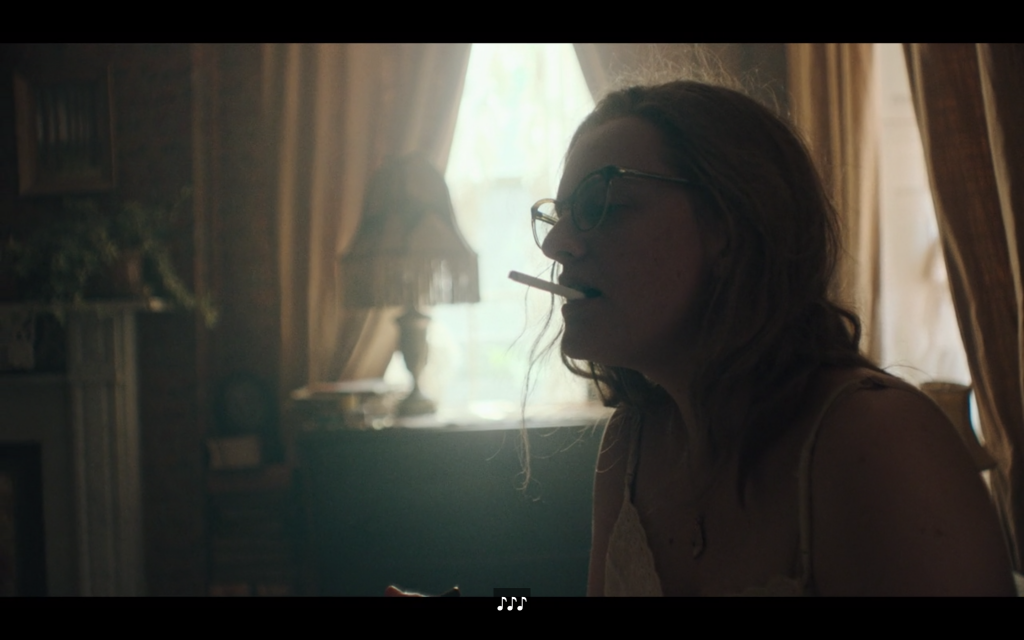
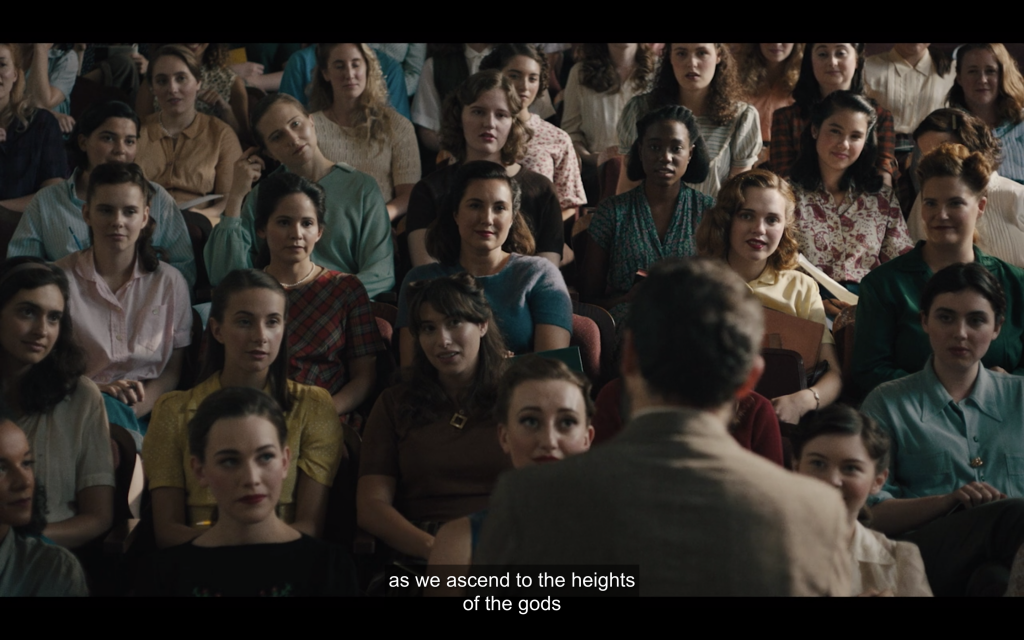
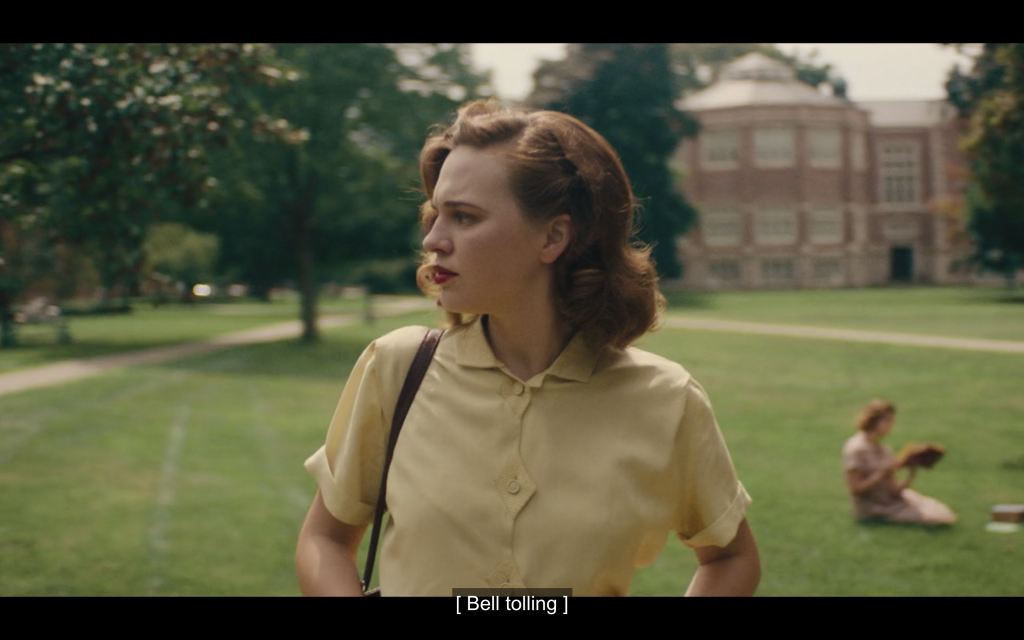
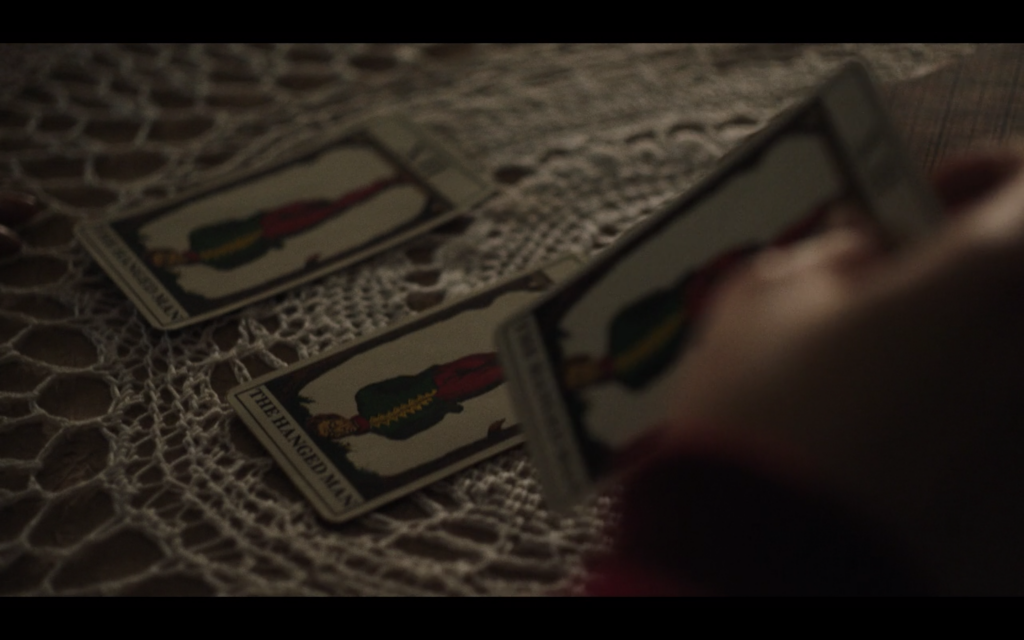
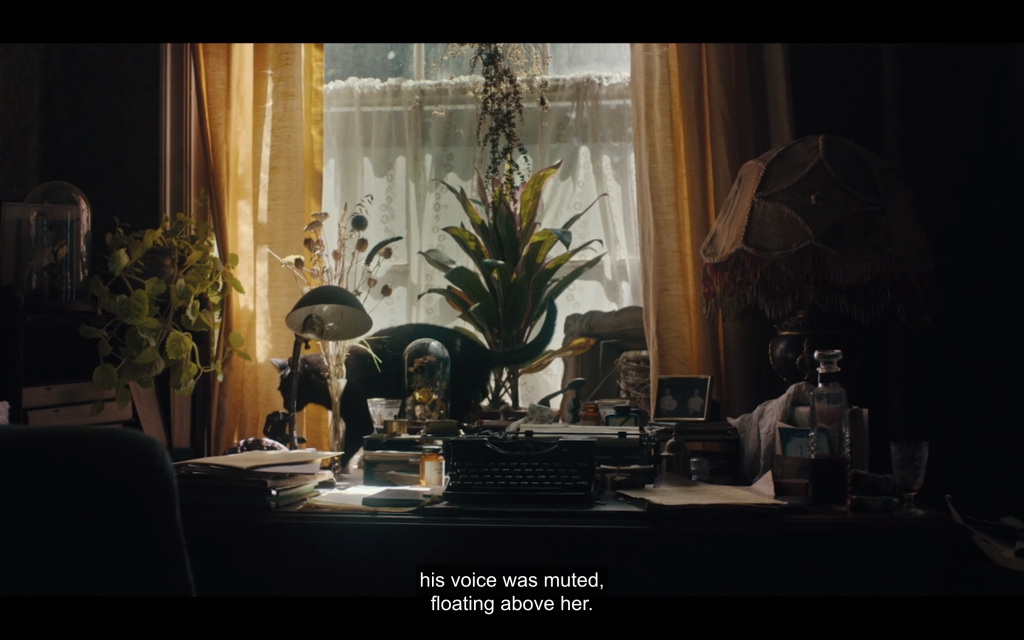
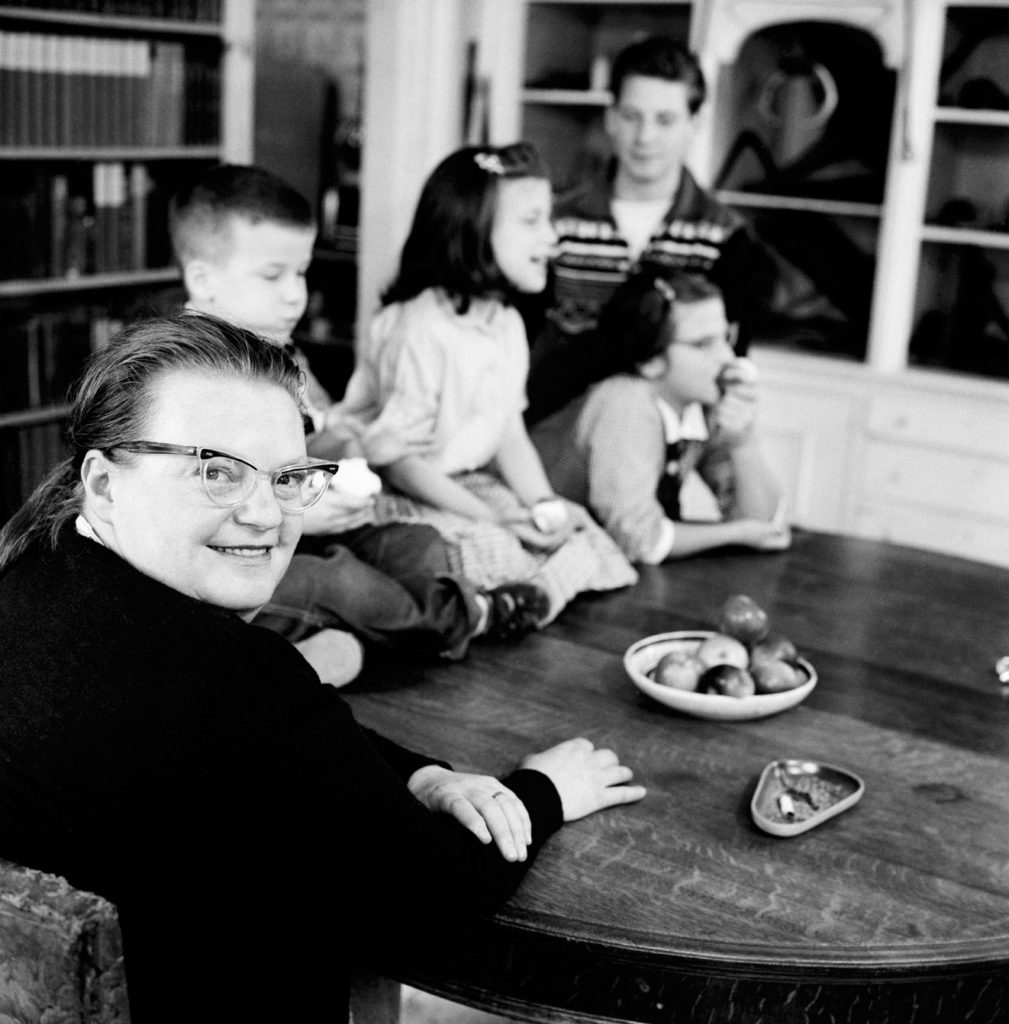
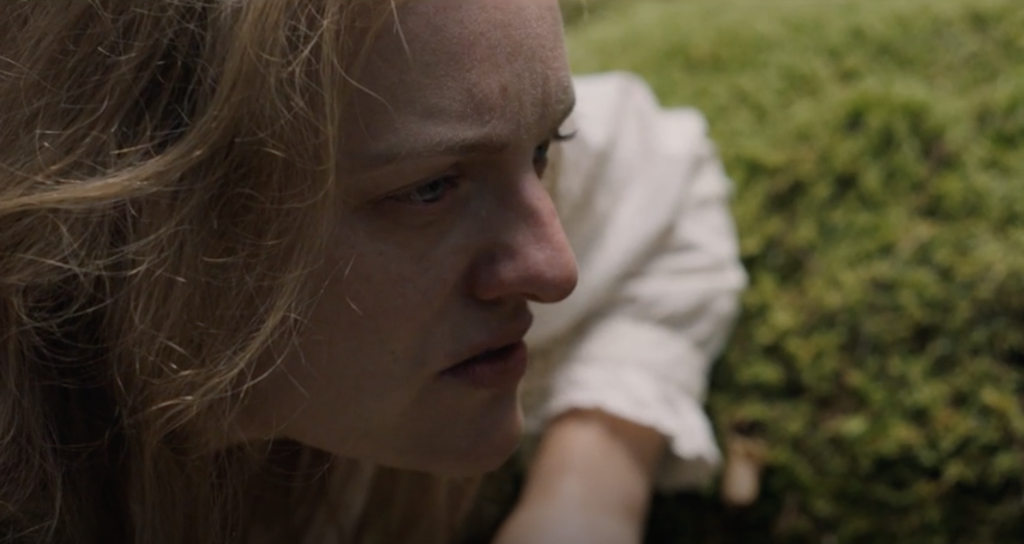











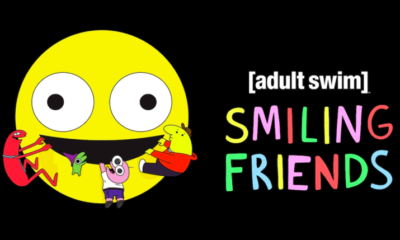

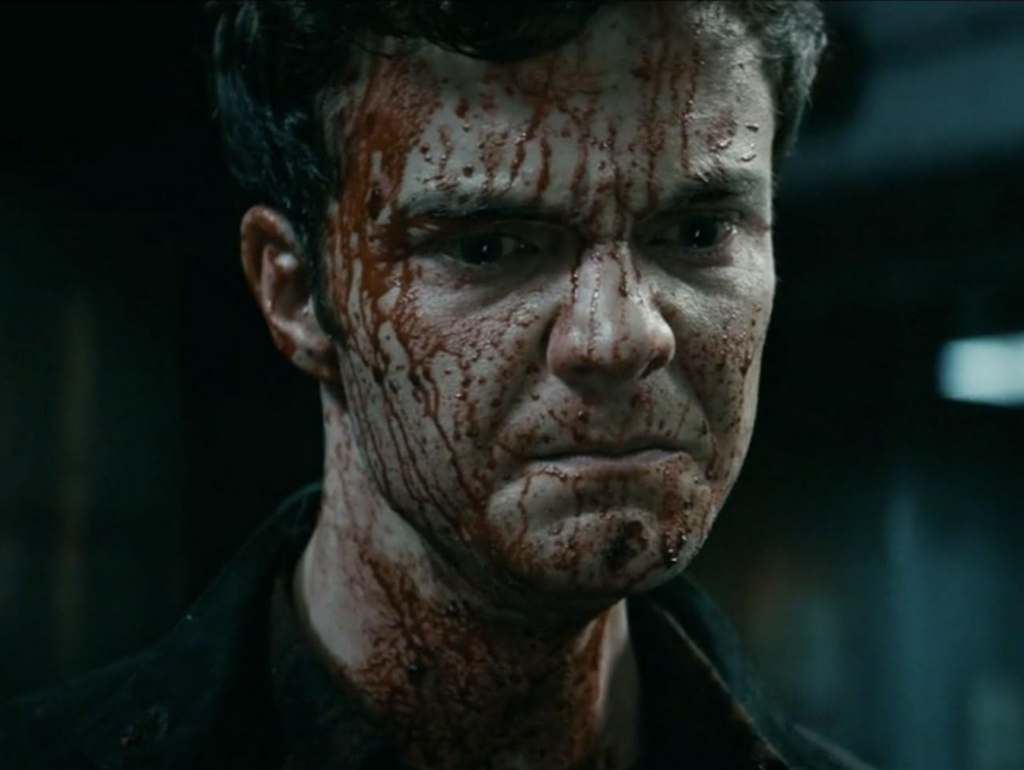
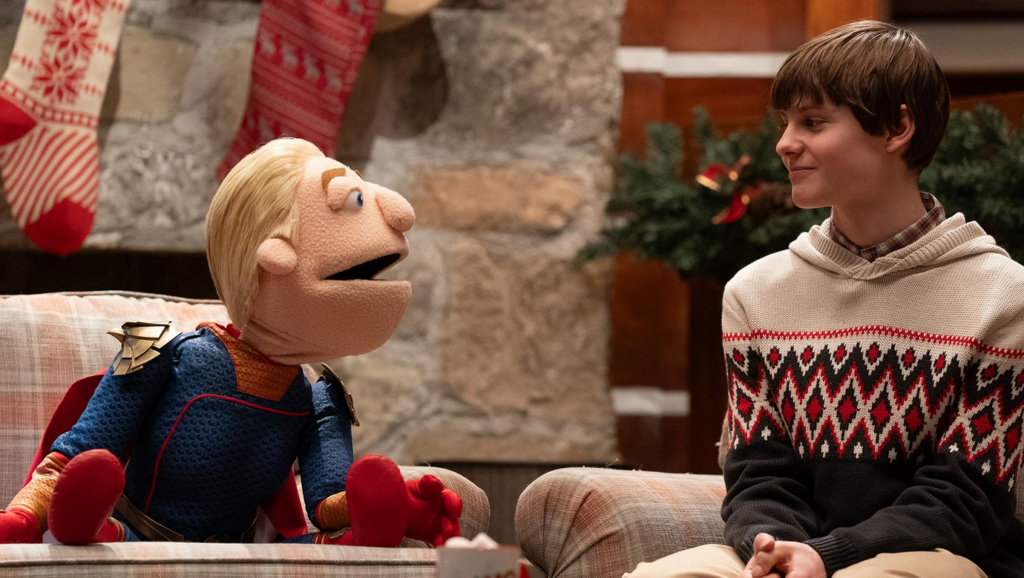
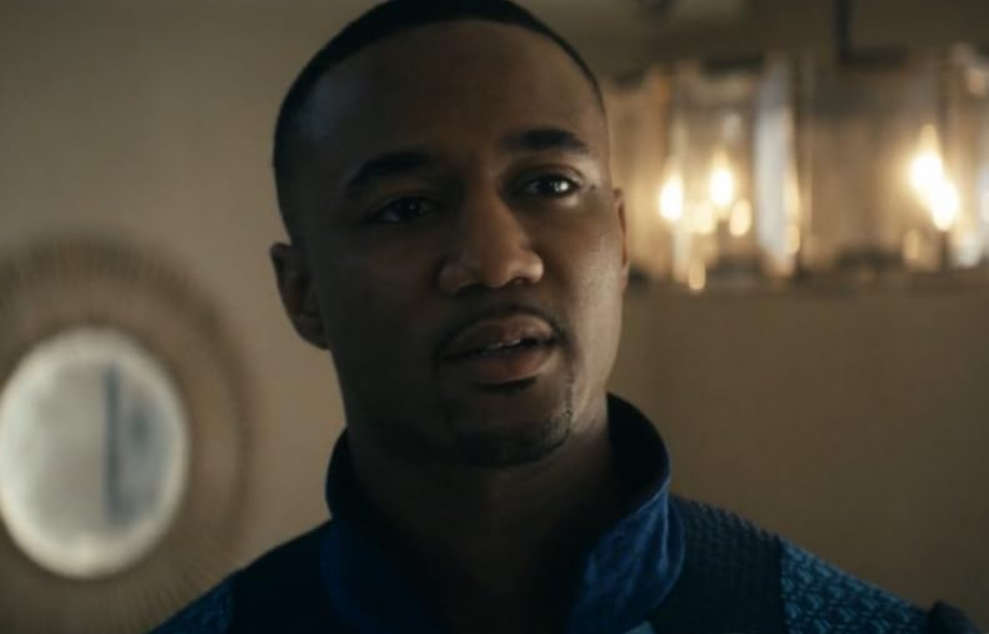
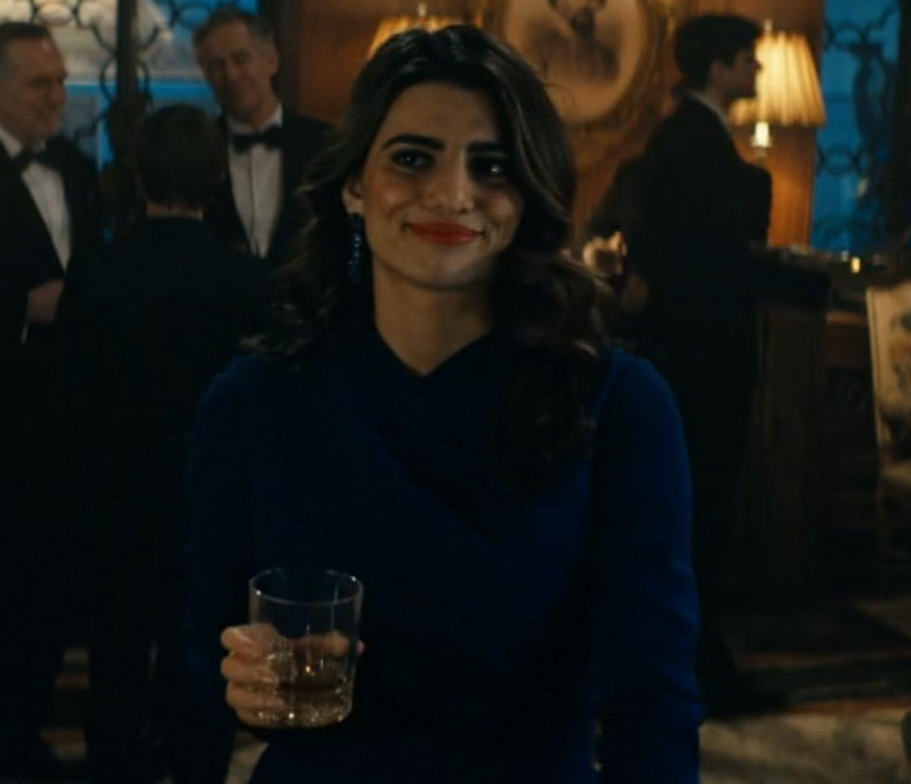
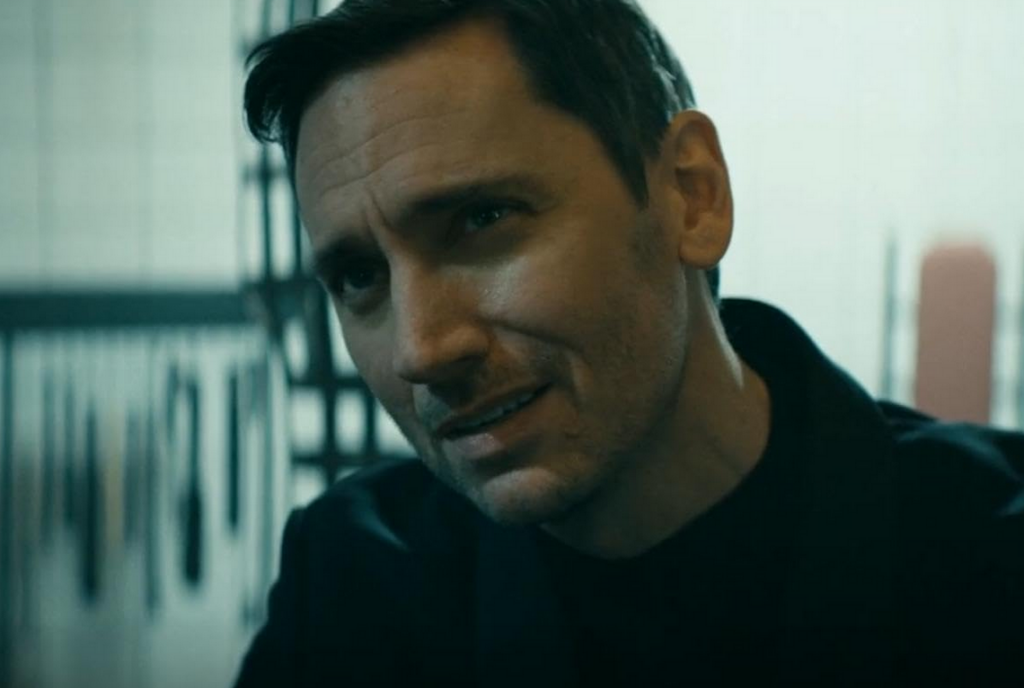


Brianna Schullo
July 9, 2020 at 4:53 pm
This is an excellent and thorough review! I really enjoyed Shirley too, but was unsure of the authenticity. Thanks for teaching me even more about Shirley Jackson’s real life!
Kristin Cleaves
July 9, 2020 at 7:04 pm
Excellent analysis and facts about Jackson’s real life. Thanks for pointing out the differences!